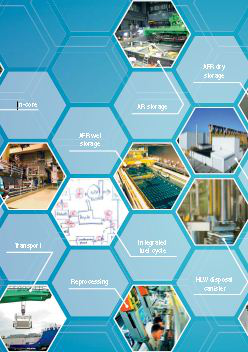Speaker
Ms
Julia Palmes
(Bundesamt fuer Strahlenschutz)
Description
Since the concept of dry interim storage of spent nuclear fuel elements in transport casks had been developed by the former DWK in the late 1970s and had been first evaluated by the RSK (Reaktor-Sicherheitskommission) in 1979, development has been going on. Dry interim storage passed a lot of modifications in different fields, but the fundamentals of this first concept – on which the dual purpose cask used for transport and storage is based on – are still up to date. They are still the essential also of the latest version of the recommendations for dry interim storage of spent fuel and high active waste by the ESK (Entsorgungskommission, former RSK).
Nonetheless, significant changes in the recent years affect the authorities, experts and operators by generation alternation of the faces working in the field of interim storage. Thus, an essential aspect of age management is transfer of knowledge and experience, which was step by step gained over the years, to the next generation.
This presentation gives an overview over the licensing activities in the field of dry interim storage of spent fuel in Germany within the last 35 years up to now and outlining future perspectives. The first licenses for dry interim storage of spent fuel in Germany were granted in 1983 and in 1987 for the central storage facilities in Gorleben and in Ahaus.
In October 1989, the responsibility for licensing of interim storage of spent fuel according to article six of the atomic Energy Act went over to the newly founded Federal Office for Radiation Protection (Bundesamt für Strahlenschutz - BfS).
Presently, there are 16 interim storage facilities in Germany in operation, housing more than 1000 loaded transport and storage casks. All existing storage licenses cover a 40 years storage period.
Within the last years, ongoing development has been demanding a respectable amount of amendments of the existing storage licenses. These are due to developments in the state of the art and in regulatory framework, but also cover more specialized themes.
The licensing activities in the next years will be dominated by special questions resulting from the necessity to empty the storage pools inside the NPPs. Also, storage of different kinds of waste from reprocessing of spent fuel in France and UK will be a substantial topic.
Country/ int. organization
Germany - Bundesamt fuer Strahlenschutz
Author
Ms
Julia Palmes
(Bundesamt fuer Strahlenschutz)
Co-author
Dr
Christoph Gastl
(Bundesamt fuer Strahlenschutz -Germany)

